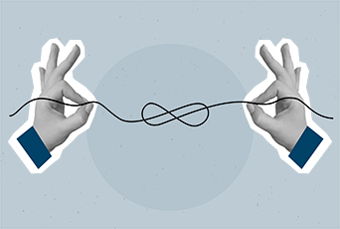"Well, we're living here in Allentown,
And they're closing all the factories down
Out in Bethlehem, they're killing time,
Filling out forms, standing in line."
- Billy Joel, Allentown
There is no way to sugarcoat the numbers. Millions of people are filing for unemployment, and tens of millions have lost their jobs in a matter of a couple of months. The severity of the hit to our economy is unprecedented. Today's headlines may grab your attention, but what does this all mean about our future?
What Happened?
Since March 7th, over 43 million initial jobless claims have been filed. Because of this, the unemployment rate has jumped from 3.5% in February, to 13.3% in May.
At the beginning of the pandemic, the idea was to shut the economy down, flatten the curve temporarily, reopen the economy when it was safe, and the jobs would return. If not naturally, then because businesses would receive forgivable loans to rehire their employees. We are just now getting to the point where companies are required to rehire any employees they furloughed to qualify for the forgivable loans. If the loan program is successful, then future job numbers should start to show improvements. We may have seen the signs of this with May’s unemployment rate dropping to 13.3% from 14.7% in April.
Allentown or College Town
Relating to the loss of many blue-collar jobs in the manufacturing industry, Billy Joel's iconic "Allentown" spoke to the permanent loss of jobs, specifically in the coal and steel industries.
These job losses happened over several decades as new industries and technological changes slowly took their place. Over time, our workforce mostly adapted, sometimes painfully. Many people, who weren't able to update their skills felt left behind.
Every year, during the summer months, many jobs disappear in college towns as students leave campus and head back home. When the school year resumes in August, jobs come back, and the local economies don't skip a beat.
So is our economy going to go the way of Allentown or a college town?
The magnitude of the rebound in our economy will depend upon the number of jobs permanently lost versus those jobs that can return. It is too early to predict with any confidence how this will play out. However, what is likely to happen is different industries will respond in unique ways.
Yes, restaurants are closing permanently. But won't they be replaced by new restaurants needing to hire; but how quickly? Hotel occupancy has plummeted, but won't those numbers bounce back up once people start traveling again? It depends. Business travel might be seeing a permanent reduction with Zoom calls replacing face to face meetings. Tourism will likely pick up, but perhaps not as quickly as we hope.
All of this points to jobs coming back but not nearly at the same pace as how they left. Think of it as a college town economy with many students spending a semester or two abroad. Not everyone will be back on campus this fall, but by this time next year, our economy should have recovered significantly.
Of course (as Billy Joel would say), I may be right….or I may be crazy!
Schedule a Consultation
We have helped our clients answer these questions and more. If you want a clear understanding of your financial future, and need help making changes to reach your goals, schedule a consultation and we can get started.
Recommended Articles
Private Equity and M&A in a Low-Rate World
Deal flow is the stream of business proposals, investment...
The Bonds that Tie – An Exciting Look at Fixed Income
With today’s yields being much higher than the close to...
Is America’s Tariff War Reshaping the U.S. Economy?
The 2025 tariff regime marks the highest average...





